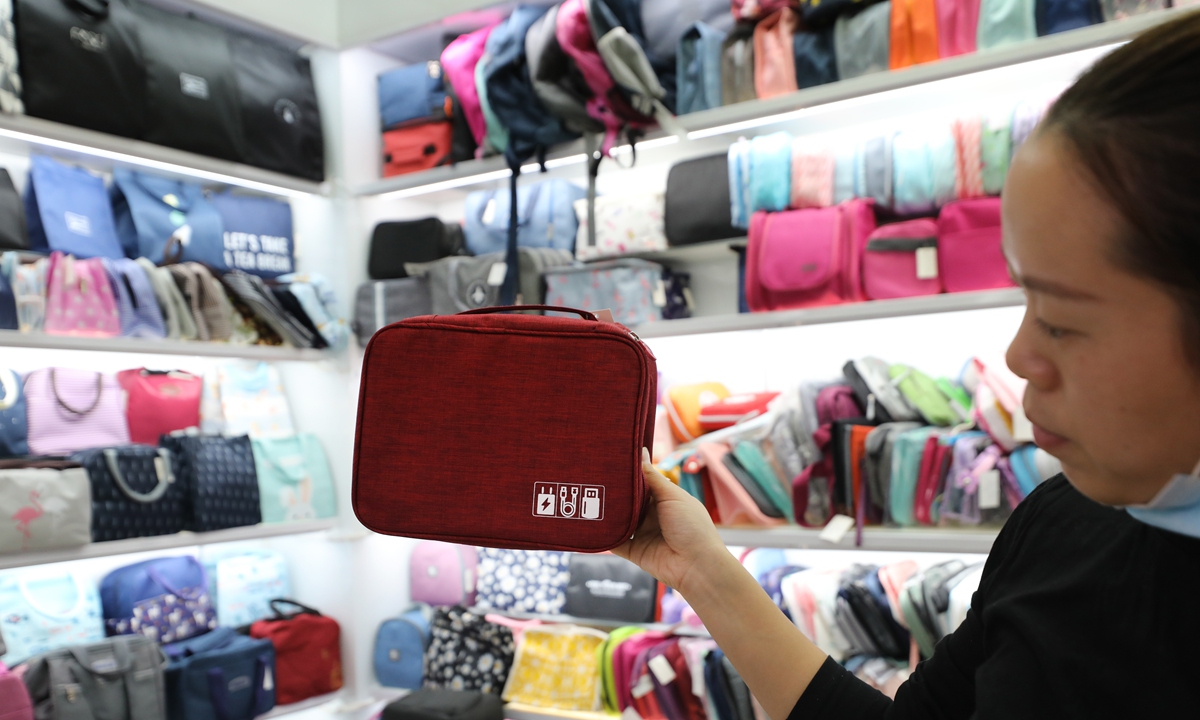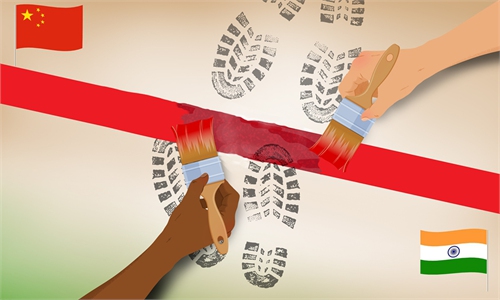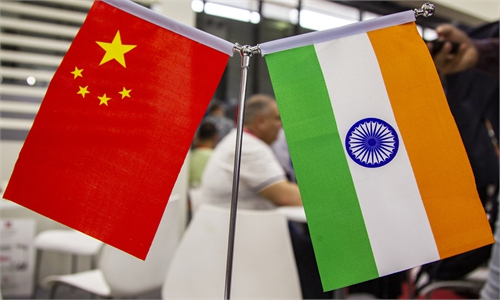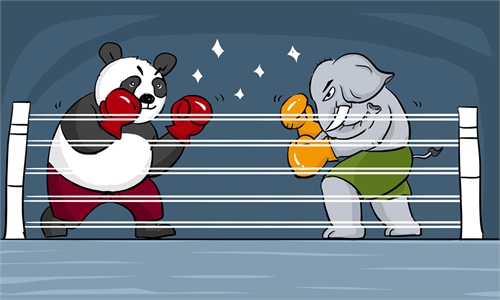Businesses bet on bright side in trade with India
Despite China-India friction, Yiwu businesses stay confident

Si Dan, a seller in China's Yiwu International Trade City, displays a handbag that is popular among Indian customers. About 70 percent of her shop's products are exported to India. Photo: Yang Hui/GT
This seems to be the worst year in a decade for Chinese companies doing business with India, and vice versa. Both countries have experienced an economic standstill as a result of the coronavirus, while rising skirmishes as part of a military standoff are leading to an unpredictable future after years of steady economic relations.
However, businesses in the Chinese manufacturing hub of Yiwu are looking on the bright side, saying that India-bound business is slowly recovering. They also said made-in-China goods are indispensable for the Indian economy, and there would be huge losses for India if it decouples from Chinese manufacturing.
For years, India has sourced a variety of goods from China, ranging from home appliances to pharmaceutical ingredients. India was once the largest export market for Yiwu, a city in East China's Zhejiang Province that's known as the world's largest consumer goods market. In 2015, Yiwu's exports to India accounted for more than half of its total exports.
In 2020, however, China's exports to India were suddenly interrupted by the outbreak of the coronavirus, which ravaged the economy of both countries. Guo Guanghui, who owns a shop selling handicraft articles to India, said that this year, she hardly got any orders from Indian customers until about July, and the orders are much smaller because the epidemic has hit consumption in India.
As of press time, coronavirus had killed 94,559 people in India, while 5,996,823 were infected.
Unstable political relations between China and India are also hurting business. Si Dan, who owns a shop selling bags in the Yiwu International Trade City, said that a few months ago, India temporarily made it difficult for Chinese shipments to be cleared at Indian ports as military tensions grew. This caused some of her clients to be afraid of accepting shipments from China.
According to Si, about 70 percent of her shop's goods are exported to India. This year, sales to India have dropped by around half.
However, Si said that she had sensed some improvement in recent months. "Orders started to come in gradually since about May, and in August, most of our customers resumed ordering. Some of them even placed bigger orders than before as they shifted from physical stores to online during the pandemic," Si told the Global Times.
According to customs data, China's exports to India fell 22.8 percent to $51.7 billion in the first eight months of this year, narrowing slightly from a 24.7 percent drop in the first seven months.
Although facing a tougher environment, Si is confident that business will rebound after the pandemic crisis passes for India, as she said that India has been very reliant upon made-in-China products. Based on her observation, the miscellaneous products sold at some Indian wholesale market in cities like New Delhi are "almost entirely made in China."
"India lacks the kind of industry chains as those in China. Therefore, if India's vendors make everyday articles in India instead of importing them from China, they would still have to buy all the raw materials from China. That's troublesome and more costly," she said, adding that productivity is also a problem because of different working habits in India.
"If the business link between China and India is cut, many sellers in India would earn much less because of surging costs. Some could even lose their jobs," she said.
Experts nevertheless said that China-India trade hangs in the balance, as it's hard to predict whether the relationship will deteriorate further.
"If China-India border disputes trigger major military conflicts or even a war, economic exchanges must plunge or even stop," Zhao Gancheng, director of the Center for Asia-Pacific Studies at the Shanghai Institute for International Studies, told the Global Times.
"If not, bilateral trade might rebound with the passing of the pandemic, but a large-scale trade increase is unlikely as India's trade gap with China, the fundamental hurdle to bilateral trade growth, is very hard to solve."
He predicted that China-India trade could shrink to about $60 billion this year, from $93 billion in 2019.
Si also expressed concern over getting paid by Indian customers if the conflicts worsen. "So far, transactions and shipments are normal with Indian clients, and many of them still use WeChat despite a government ban. But for new clients, we prefer to settle contracts in cash instead of allowing credit, just in case," she said.




